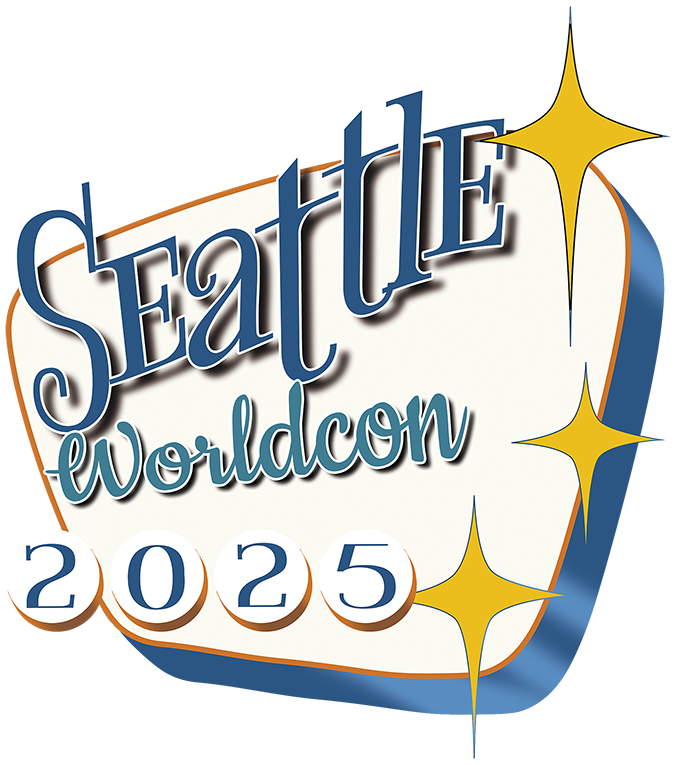[Seattle Worldcon is pleased to publish Farah Mendlesohn’s guest editorial in response to John Davis Nicoll’s Fantastic Fiction column which ran last Friday. The opinions of the fan writers we publish under their bylines in this Fantastic Fiction column are their own and do not reflect the opinions of the Worldcon. While we publish these pieces in the spirit of fannish debate, to foster conversation, and to explore our convention theme, we feel we missed the mark on this topic, and the intent of the piece did not come through, causing a disservice to the community and to the writer. As part of doing better moving forward, we are publishing this rebuttal and invite further guest pieces on this topic. An explanation of our Yesterday, Today & Tomorrow blog and its current columns is available. -Ed.]
In 2010 my book The Inter-Galactic Playground was nominated for a Hugo. It was already out of date.
When I started that book, around 2005, there seemed to be very little around in the way of sf for teenagers. I’d been on several panels in which people had reeled off great YA fantasy, but struggled with sf titles beyond the magic duology of Heinlein and Norton (although many of the big names of the 1950s dabbled in teen fiction). Ann Halam [Note 1], Monica Hughes, John Christopher, and William Sleator (among others), although big names among librarians didn’t seem to have penetrated the consciousness of the then adult readers and editors. They existed as a separate thing, apart from the ‘mainstream’ of science fiction.

In 2001 however there was a whisper of change. The big book in the UK that year, being handed from fan to fan, was Philip Reeve’s Mortal Engines, a far future novel which had economics, ecology, history, politics, and freaking moving cities! [Note 2] We were off, with editors suddenly keen to find science fiction for teenagers. Oisin McGann published The Gods and Their Machines (post colonialism, 2005) and The Harvest Tide Project (an alien culture of shape-changers, 2013); Nnedi Okorofor’s Zahra the Windseeker (planetary romance) came out in 2005, and The Shadow Speaker (post-genocide eco fiction) in 2007. Adam Rex, The True Meaning of Smek Day (alien invasion, 2007) [Note 3]; Patrick Ness published The Knife of Letting Go (male only world, in deep trouble, 2008) and Suzanne Collins, The Hunger Games (resource scarce future, Big Propaganda, 2008). The books were now coming out faster than I could read them.
In 2006 the SFWA/Nebulas established the Andre Norton Award. You can’t set up an award unless there are titles to nominate. Although fantasy dominated, the science fiction nominations are steady. Fantasy dominates in the first decade, by the second it’s about 50%, and in 2022 science fiction outstrips fantasy (although it drops back to roughly even again after that). And science fiction for teens was becoming where you looked for new authors. The Lodestar, awarded at Worldcons for Young Adult sf and fantasy, is in its sixth year and its science fiction nominees are stellar: Tomi Adeyemi, Dhionnelle Clayton, Justina Ireland, Peadar O Guillin, Yoon Ha Lee, Naomi Kritzer, Darcie Little Badger, Xiran Jay Zhao, Charlie Jane Anders, and that’s without drifting into the authors who might be sf or might be fantasy, depending on how you look at things. This year, Naomi Kritzer appeared on both the Lodestar ballot and the Hugo ballot, scooping two Hugos. If you want to pursue new titles also keep an eye on the Ignyte and the BSFA nomination lists.
In 2024 Nnedi Okorofor, one of the leading YA science fiction writers, was a guest of honour at Glasgow. In 2025, K. Tempest Bradford, whose Middle Grade/YA book Ruby Finley vs. the Interstellar Invasion is huge fun, and good science fiction, is one of Seattle’s Hosts.
In 2005 I was scrambling to find new—never mind excellent—science fiction titles for young adults. In 2024 I can’t keep up.
Notes
- Also known as Gwyneth Jones.
- The film gets the cities right but not much else.
- Counted by some as middle-grade but given the wide range of maturity and reading skills between 10 and 16, and that these don’t even map to each other, I prefer a smudgy boundary.
Farah Mendlesohn is a con-runner, a retired history professor, a charity manager, co-editor of the Hugo Award-Winning Cambridge Companion to Science Fiction, author of the Hugo-nominated The Pleasant Profession of Robert A. Heinlein, and is currently working on a short book about Joanna Russ’s The Female Man (preorder Considering The Female Man by Joanna Russ, or, As the Bear Swore). Farah has chaired three Eastercons, has served in various capacities in Worldcons and Eastercons, and is part of the World Fantasy 2025 team. (Farah/they/she)


What I forgot to say is that in the 1990s and early 2000s a lot of writers of adult sf wrote excellent titles for the teen tie in market.
One of the most popular series (and the one that most of my 18-21- year-old teaching students have heard of, if not read) is Malorie Blackman’s Noughts & Crosses. The first book was published in 2001 and the final one in 2021. The series has been mentioned by many young Black British creatives such as Stormzy as having a big impact on them in their teen years.
Let’s not forget TV/movie/game tie-in books. Star Wars, for instance, has a lot of books directly aimed at MG and YA readers, so does Warhammer.